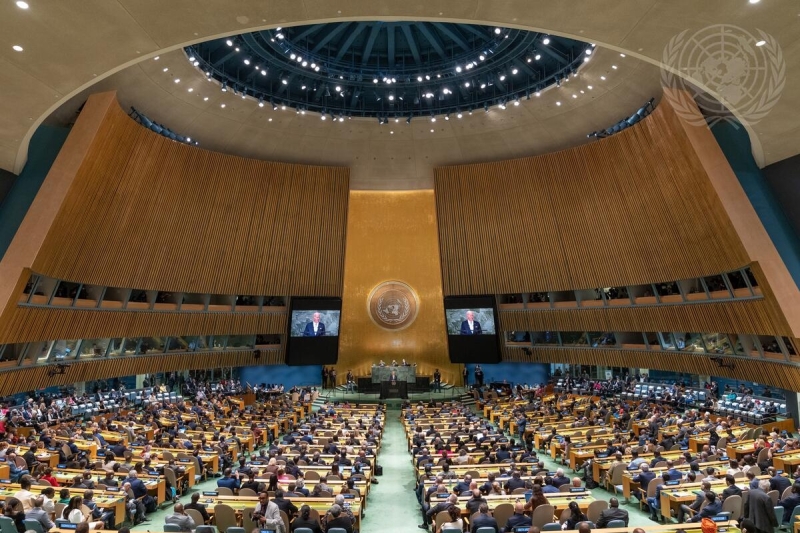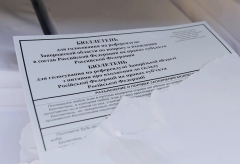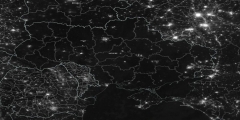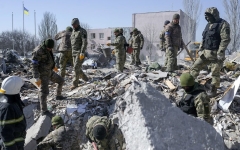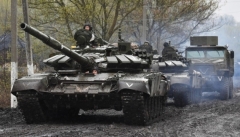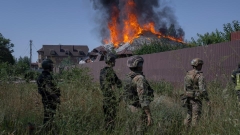Mexico exposes proposal for peace before paralysis of the Security Council
Mexico presented today before the United Nations Organization the proposal of President Andrés Manuel López Obrador to promote a peace process in the Russia-Ukraine conflict before a General Assembly and a Security Council that have dedicated themselves more to condemning and denouncing than to the search for diplomatic solutions.
“Based on its pacifist vocation, Mexico believes that the international community must now channel its best efforts to achieve peace… strengthen the efforts of the Secretary General, Antonio Guterres, through the formation of a committee for dialogue and peace in Ukraine, with the participation of other heads of state and government, including, if possible, His Excellency Narendra Modi, Prime Minister of India, and His Holiness Pope Francis,” declared Mexican Foreign Minister Marcelo Ebrard when presenting the proposal for peace first before a session of the Security Council and later before the General Assembly of the UN.
He explained that the objective is "to generate new mechanisms for dialogue and create complementary spaces for mediation that foster trust, reduce tensions and open the way to true peace."
Before the General Assembly, he expanded on the details of the proposal, pointing out that in the face of the "paralysis" of the Security Council in stopping the war and promoting a diplomatic process, the president of Mexico seeks, with his proposal, "to offer a complementary diplomatic channel to existing ones, to interact with the parties in conflict, with a view to reducing tensions and channeling mediation”.
He reported that this proposal has already been shared with UN Secretary General Antonio Guterres, the parties to the conflict, such as representatives of India and the Vatican. and that Mexico will continue “with the necessary consultations, with the sole purpose of being able to contribute, as an impartial actor and in good faith, to generating the widest possible support for the efforts and good offices of the Secretary General and the Caucus, whose formation we hope will appropriate, with the support of the UN Member States”. [https://gadebate.un.org/sites/default/files/gastatements/77/mx_es.pdf].
He recalled that Mexico acts by its principles of non-intervention and peaceful conflict resolution and recalled, in his presentation before the Council, that "from its own experience, Mexico knows and understands well the importance of having the basic guarantee of being able to live without the threat to be invaded by another country. Any action that violates that principle is illegal and illegitimate.”
In the session of the Security Council, the most powerful organ of the UN, the representatives of the five permanent members and several of the ten temporary members intervened, although none made public reference to the Mexican proposal for now. Ebrard is meeting with his counterparts from India, Russia, the Vatican; this Thursday he reported that he had a conversation with Ukrainian Foreign Minister Dymtro Kuleba who "thanked Mexico's efforts" in the Council.
They came, they saw, they left
In the Security Council session, only Mexico offered a concrete proposal to promote a peace process, while almost all the others reiterated their common positions that this conflict was putting the foundations of the UN at risk. They condemned the violation of sovereignty and underlined the urgent need for a negotiated solution. But at the conclusion of their speeches, they all left without taking any action.
The UN Secretary General, Antonio Guterres, in addition to repeating his calls for an end to the war, denounced as "totally unacceptable" the threats of the use of nuclear weapons by Russia and considered that the attempt to annex Ukrainian territory by Russia is a “violation of the UN charter”.
The prosecutor of the International Criminal Court, Karim Kahn, informed the Council about the investigation, among other things, of mass graves and warned that “the echoes of Nuremberg must be heard today”.
Secretary of State Antony Blinken, representing the country that proclaims itself the guardian of international order, deplored Russia's actions for violating the principles that it is supposed to uphold as a permanent member of the Security Council. However, he made no reference to the fact that another permanent member - his own - has violated those same norms repeatedly, most recently in the invasion of Iraq.
He insisted that Russia must be "accountable" for its crimes against humanity and war crimes, but did not mention that his country has not ratified the Rome Statute that established the international entity to achieve that goal - the International Criminal Court - nor has it agreed to be held accountable for war crimes including torture and attacks on civilian targets committed by the United States in Iraq, Afghanistan and other countries in recent years.
Blinken repeated that with Russia's action, “the very international order that we have come together here to uphold is being shredded before our eyes. We cannot… allow President Putin to get away with that.”
Representatives of European countries echoed Blinken's words, again and again calling for the prosecution of the Russian leadership. The representative of the European Union Josep Borrell Fontelles, pointing to the widespread international repudiation of the invasion of Ukraine, declared that “politically, Russia has already lost the war”.
But Sergei Lavrov, Foreign Minister of the Russian Federation, argued that the narrative promoted by Ukraine and its allies ignores that the origins of the conflict have to do with "an assault" on Russian communities inside Ukraine, with repeated and serious violations of human rights and attacks on civilians - some led by neo-Nazi forces - all of which have never been investigated by the UN. He denounced that the objective of the countries that are supporting Ukraine militarily is to prolong the conflict and that "this policy implies the direct involvement of the West in the conflict."
Lavrov arrived late so as not to hear the first speakers and left before his Ukrainian counterpart Kuleba took the microphone, who called the Russian representatives liars, and condemned the "criminal" invasion of his country, insisted that Putin, and its diplomats who "cover up the crime of aggression" -in obvious reference to Lavrov-, should be held accountable before a special court for them.
For his part, Chinese Foreign Minister Wang Yi called for respect for the principles of the UN charter, indicated his support for a "negotiation without conditions" and an "escalation" of the conflict by both parties and suggested that all investigation into possible violations of that charter and other possible crimes should avoid being "politicized" and carried out in an "impartial" manner on the facts.
It was the first time since the war began seven months ago that the representatives of the countries involved in the conflict were in the same place.

Comments to this:


